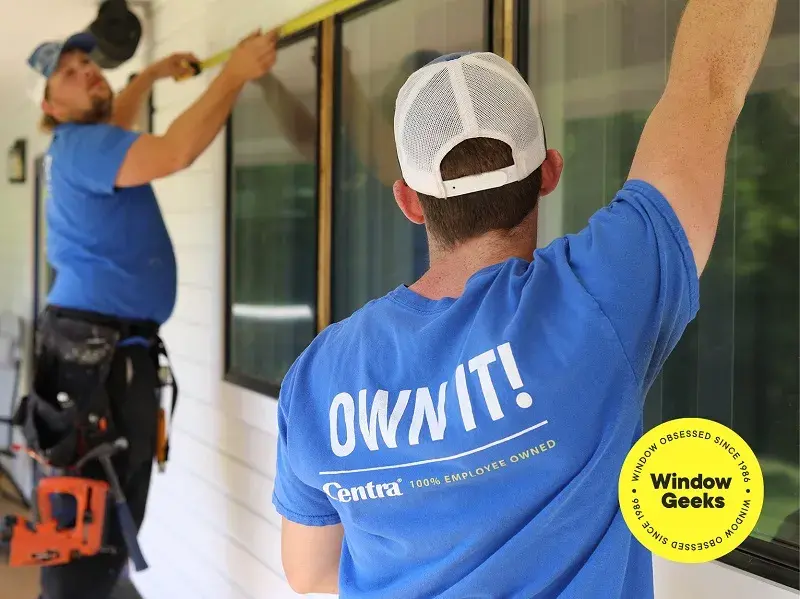Categories
Trending
Comfort
When To Repair New Windows
Energy Savings Rebates
The Benefits of Triple Pane Sliding Windows & Doors
Centra Cares In The News
2024: Another Great Year for Centra Cares
Recommended
Master Class
Guide to Code Compliance for Thermal Performance in WindowsMaster Class
What is Window Thermal Performance?What Makes Thermal Performance Challenging in North America?
So far on the Window Geeks: Master Class, we’ve been exploring everything to do with the thermal performance of windows – and there’s still one more lesson. After this week’s article, you should understand the following:
- What (other than rating systems) can make thermal performance challenging in North America.
- Why two windows of the same size and configuration can have a different U-Value.
First of all, take a look at the examples below:
This shows how the performance of a window can differ, even if they’re the same configuration like the 2900 and 2600 series. The windows above all have exactly the same glass (270/cl), but their U-Values vary due to the type of frame used. The difference can be quite substantial.
What Challenges are We Referring to?
The most significant challenge is balancing design and thermal performance. We’re in an age where building design is a highly creative process. For architects and designers, this is a part of their unique selling proposition. It’s their creativity that makes them sought after. So, to a lot of designers, the aesthetic of the building is just as important as thermal performance. That’s where this particular challenge comes into play.
Thermal requirements for windows are getting ever more stringent – and superior thermal performance in a building usually means smaller openings and more glass.
The Cost of a Better U-Value
We’ve touched on it before, but it’s worth reiterating – Given that U-Values are regularly specified to the second decimal place, major (and expensive) upgrades can be required for a project. Despite seeming fairly insignificant, that last digit can be the difference between higher-performance glass coatings or even double or triple glazing. It’s important to take into account how these small changes can have a big impact on your budget. Do you have flexibility in your project? If so, it’s worth consulting with the experts to see if you can make savings while still achieving essentially the same performance.
How to Navigate this Challenge
Prioritize. Sure, sometimes both thermal performance and the envisioned design of a project may be compatible and no changes will be necessary – but with more creative plans, one will likely have to take precedence over the other. If aesthetics is the most important aspect of the project, then you may look to U-Values within 1.6 and 1.4 (depending on the jurisdiction). With an energy modeller, the window U-Values can be rather flexible providing performance changes are offset elsewhere. On the other hand, if thermal performance is the top priority, design compromises will be required.
Next time, we’ll be moving on from thermal performance to a new topic – air and water tightness.
Be sure to sign up for our Master Class to follow along. Have a project you're working on? Reach out to the Window Geeks early in the process and we'll make sure it's a success together.



